There is just one vampiric culture currently. It could be expanded for multiple cultures fairly easily, though it would usually only matter if the culture spread very far independent of the realm, or if king+ tier vampires appear in multiple areas and remain stable.
Mythos 2 - Historical Fantasy Reborn
- Thread starter kellenbeck
- Start date
-
We have updated our Community Code of Conduct. Please read through the new rules for the forum that are an integral part of Paradox Interactive’s User Agreement.
You are using an out of date browser. It may not display this or other websites correctly.
You should upgrade or use an alternative browser.
You should upgrade or use an alternative browser.
The work the Team is doing is wonderful! I know the community is eagerly awaiting this, and we heartily thank you!
A quick question concerning mod features. I saw a post on steam(?) discussing how Norse Giants(Jotuns) are to be removed, but we will still have the generic giant culture/race.
My question is that in the future, will we see certain cultural deviations between the monster races(giants, djin, etc) or will it be mono-culture for most of development?
My question is that in the future, will we see certain cultural deviations between the monster races(giants, djin, etc) or will it be mono-culture for most of development?
Dev Diary - Werewolves
Mythos
Dev Diary 3: Werewolves
Possessing the ability for a man to change into a wolf, werewolves have long been a part of European superstition and folklore. While some folklores tie lycanthopy in with vampirism or witchcraft, for Mythos' purposes, it is a separate entity.Dev Diary 3: Werewolves
Secrecy
Control
Control changes based on your decisions in events. Some events may give a loss or increase in control at a cost, while others may have the change in control as a part of larger effects.
Healing

One of the most famous traits of werewolves is their ability to rapidly heal from injuries that would permanently cripple or event kill normal humans. Werewolves will, over time, recover from injuries, lost limbs, blindness, castration, and other similar wounds. This healing occurs more quickly for werewolves with lower control. Werewolves with extremely low control can even heal from being incapacitated. However, healing from an obviously permanent injury will draw suspicion and may reveal your true nature.
Spreading
Like Vampires, Werewolves are able to spread with a targeted "Offer to Turn" decision. However, werewolves are living creatures and are able to spread in a more natural way.
When they reach the age of 16, wolf-blooded children may either outgrowth their strange child behavior or become a full werewolf. Children with werewolf parents and parents who encouraged their behavior are more likely to turn, while human parents and parents who tried to stop the child from turning are more apt to stay fully human.
If a child turns, their control starts based on the control of their parents and the choices during childhood.
Challenge
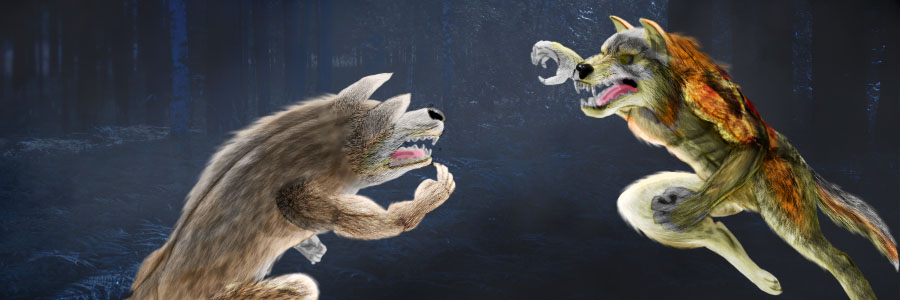
In werewolf culture, an unfit ruler does not stay at the head of the pack for long. If werewolf culture is adopted in your realm, lower werewolf vassals may challenge their liege in a fight for dominance under certain situations. Initially, new, young, female, tyrannical, weak, physically deformed, incapable, non-werewolf, and wrong-culture rulers can be challenged for the throne, though additional laws may be passed restricting when challenges can be issued.
When a challenge is issued, the challenger and the ruler will fight each other in one-on-one combat, handled by a series of events. Child rulers will have a champion, regent, or parent stand in for them, while incapable rulers will be unable to defend themselves, though another werewolf may answer the challenge and fight for the title themselves. Vassals may put their support behind one side in hopes that their support should be remembered if they win, offering a small boost.
The fights are not necessarily to the death, though death is possible, and heavy injury is common.
Other DLC
Werewolves with the Horse Lords DLC may receive some of the wolf-blooded events in addition to other werewolf events.I may add one additional Dev Diary before release to give more time for some bug testing and QoL tweaks. The additional diary will cover the changes to the magic system. Most notable, the Magic focus has been fleshed out and 4 new lifestyles are available with their own decisions.
A quick question concerning mod features. I saw a post on steam(?) discussing how Norse Giants(Jotuns) are to be removed, but we will still have the generic giant culture/race.
My question is that in the future, will we see certain cultural deviations between the monster races(giants, djin, etc) or will it be mono-culture for most of development?
I don't have any plans to remove giants - I actually have plans to add a new sat of traits for them, similar to the Purity, Hunger, and Control traits for dragons, vampires, and werewolves. I also have some other plans down the line.
I may add a second culture for giants to separate Jotunn from non-norse giants if there's enough material elsewhere (part of the "down the line" bit above). Djinni are very much a part of existing middle eastern culture to the point where I don't plan to give them their own culture at this time, though I haven't started much development on them yet. I have plans for the living dead that will involve multiple cultures.
How feasible is for a playthrough to accumulate supernatural traits? For example, can werewolves be turned into vampires retaining the werewolf features?
Also, may you consider adding a rule that controls the likelihood of supernatural traits being revealed to others?
Also, may you consider adding a rule that controls the likelihood of supernatural traits being revealed to others?
Werewolves and vampires are mutually exclusive, and most other races can't be targeted with the Offer to Turn decision (though other ways still work)
You may be able to get some combinations through selective breeding. Breeding true increases your chance of passing on the traits, so adding in new traits will risk losing some old ones unless you're also carefully breeding your spouses. I think a demi-god, dragon, werewolf, djinn, giant, mage would be possible with lots of careful breeding.
Also, the offspring of giants and gods can have some interesting effects that players familiar with Norse mythology might recognize.
EDIT: Oh, yeah, you posted a second question. That's one of the extra things I'm trying to put in before release, hence the possible extra dev diary.
You may be able to get some combinations through selective breeding. Breeding true increases your chance of passing on the traits, so adding in new traits will risk losing some old ones unless you're also carefully breeding your spouses. I think a demi-god, dragon, werewolf, djinn, giant, mage would be possible with lots of careful breeding.
Also, the offspring of giants and gods can have some interesting effects that players familiar with Norse mythology might recognize.
EDIT: Oh, yeah, you posted a second question. That's one of the extra things I'm trying to put in before release, hence the possible extra dev diary.
@Rydelfox
Thanks for the reply. I forgot that it was actually the ck2+ version of mythos that decided to remove the Jotun. Sorry about that. But exciting to see a new dev diary! One more question, what is the average lifespan, of say a low control werewolf? I see that they are now mortal in this version, but does their trait offers any health bonuses.
Thanks for the reply. I forgot that it was actually the ck2+ version of mythos that decided to remove the Jotun. Sorry about that. But exciting to see a new dev diary! One more question, what is the average lifespan, of say a low control werewolf? I see that they are now mortal in this version, but does their trait offers any health bonuses.
Difficult to say - Werewolves don't get a direct health bonus, so their base life expectancy is the same as a normal human, but healing from injury quickly means you spend less time with severely injured, mangled, wounded, or incapable, and some of the traits from werewolf events give traits the increase health (like brawny) or remove traits that decrease it (like stressed). I've also made personal combat influence your chance to get injured or killed in battle, so low control werewolves are less likely to die from leading troops.
So, werewolves should live longer than humans on average, but in ways that are a bit difficult to run numbers on.
So, werewolves should live longer than humans on average, but in ways that are a bit difficult to run numbers on.
Dev Diary - Magic
Mythos
Dev Diary 4: Magic
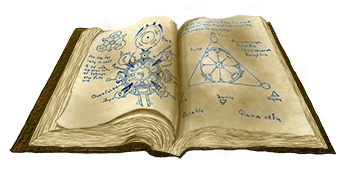
Dev Diary 4: Magic

While Magic has been in the game since the original Mythos Historical Fantasy, it has received a significant expansion and rework, especially for users with Way of Life.
The Magic focus has been significantly expanded in a number of ways. When first selecting the focus, you will need to choose between 4 paths, 2 of which are available to non-mages. You may change your mind and switch to another path by decision, though doing so will wipe all progress you have gained.
While some religions look positively on mages, the Abrahamic religions have a very negative view of them. Fortunately, with a bit of luck, a Christian, Muslim, or Jewish mage may come to be seen as working miracles for God.
The Tower
Mages who continue to pursue the magic focus after gaining a lifestyle may being to build a great mage's tower to further their work. This unique building is exclusive to the capital and grants strong bonuses depending on the lifestyle of the builder. While the effects are limited to mages with the lifestyle of the builder, should your heir have a different lifestyle, they can choose to rebuild the tower in their image.Changed Spells
Brew Potion - Now a targetted action, this may be used on any character who is neither celibate nor your rival to improve their desire for you. While it may not make them your lover in one go, continued successful applications can yield strong results. However, should the potion fail, it may have the opposite effect. Herbalists are more likely to have a beneficial effectPerform Alchemy - Alchemy has been restricted to the Alchemist lifestyle, but no longer requires a magical education. Instead of being fully gain or loss, the attempt can simply fail leaving you with wasted time, or have a partial effect a clever character may take advantage of.
Cast Aura - There are now multiple auras available, and success can give auras of different strengths. Enchanters gain stronger effects
Summon Ethereal Army - Has a stronger effect with the Summoner lifestyle. The type of troop received can vary based on your religion.
I plan to release the mod next week, along side the patch notes.
Last edited:
So, a couple of very minor points:
1 - the fourth magic trait is mising the four dots.
2 - Probably the Sorcerers trait should be Sorcery and Enchanters should be Enchantment to go along with Alchemy and Herbalism
3 - In general, I'm unclear as to how does the mechanic go - it doesn't help that I didn't play much of the original game: is magic an education as the four trait suggests? Or are they just to mark levels? And do I understand correctly that if I start alchemy, get to the third magic trait and then switch to herbalism, I'm pushed back to the first magic trait?
4 - How long does on average take to get to the highest magic level? Are the magic abilities gated behind a certain magic level?
1 - the fourth magic trait is mising the four dots.
2 - Probably the Sorcerers trait should be Sorcery and Enchanters should be Enchantment to go along with Alchemy and Herbalism
3 - In general, I'm unclear as to how does the mechanic go - it doesn't help that I didn't play much of the original game: is magic an education as the four trait suggests? Or are they just to mark levels? And do I understand correctly that if I start alchemy, get to the third magic trait and then switch to herbalism, I'm pushed back to the first magic trait?
4 - How long does on average take to get to the highest magic level? Are the magic abilities gated behind a certain magic level?
1 - I'll correct this
2 - The descriptions were just descriptions of the four choices. not the names of the traits. I have reworded the dev diary to be more consistent now.
3 - Magic is an education. When you are on a focus, you progress is a modifier with +1 Learning, a modifier with +2 learning, then the lifestyle, similar to the other focuses. This is the part that resets if you change paths.
4 - Magic is probably one of the longer focuses to get a trait in, though still faster than Theology or Family in my experience. Some spells require that you either have one of the more advanced education traits, or a lower education trait with high learning.
2 - The descriptions were just descriptions of the four choices. not the names of the traits. I have reworded the dev diary to be more consistent now.
3 - Magic is an education. When you are on a focus, you progress is a modifier with +1 Learning, a modifier with +2 learning, then the lifestyle, similar to the other focuses. This is the part that resets if you change paths.
4 - Magic is probably one of the longer focuses to get a trait in, though still faster than Theology or Family in my experience. Some spells require that you either have one of the more advanced education traits, or a lower education trait with high learning.
Next week? Surely, when you realesed your mod i will try it. I want to see how medieval Europe is dealing with this all fantasy features.
So how does the Way of Life focus screen look with an additional focus?
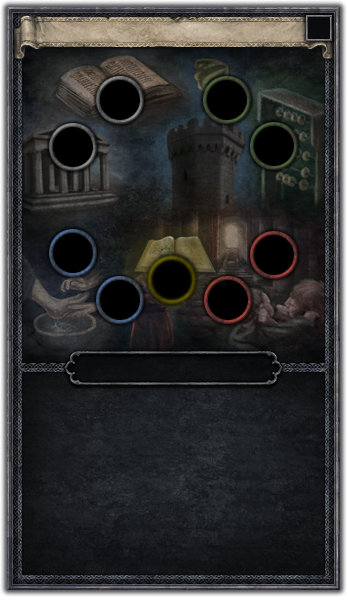
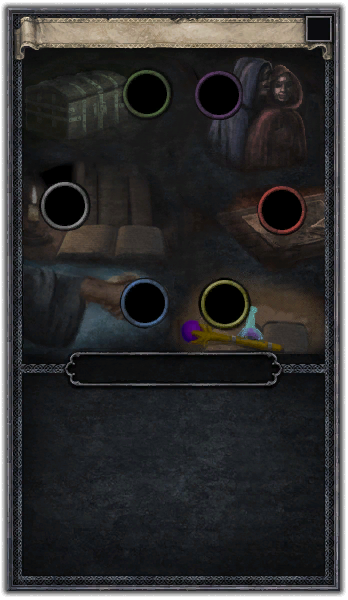
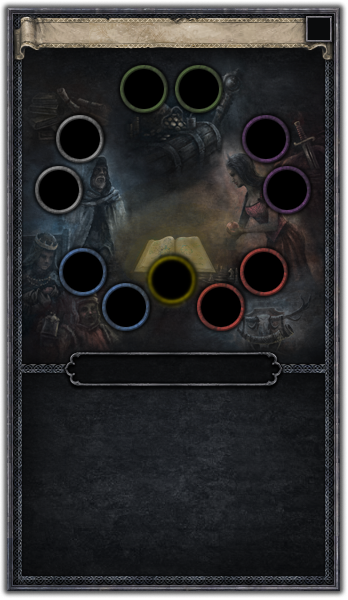
No screenshots, but I have the background image the icons appear over.

